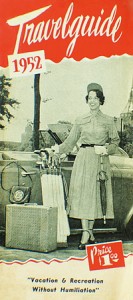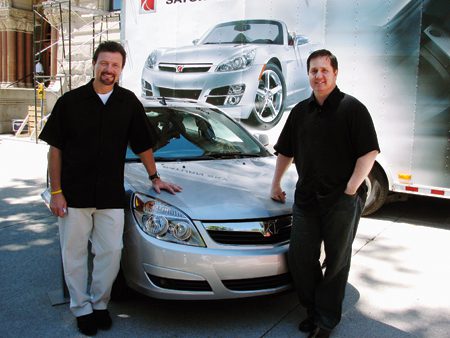 You know you’re a baby boomer if your parents’ idea of togetherness entailed boxing up the family in a car and driving hundreds of miles, stopping at every national park and roadside attraction.
You know you’re a baby boomer if your parents’ idea of togetherness entailed boxing up the family in a car and driving hundreds of miles, stopping at every national park and roadside attraction.
Born of post-war prosperity, this vacation ritual began in 1945 for middle-class America, installing the family road trip as a near rite of passage that endured three decades.
“Today’s baby boomers . . . still remember the sites they saw and the squabbles in the backseat,” (p. 7) writes history associate professor Susan Sessions Rugh (BA ’74) in her new book Are We There Yet? The Golden Age of American Family Vacations (University Press of Kansas; 240 pp.; $29.95). Enlivened with anecdotes, the book depicts an optimistic generation determined to bond on the road. The rise of vacation benefits, first-time car ownership, and a newly paved network of interstate highways gave Americans free rein to explore the country and, Rugh argues, cultivate a sense of citizenship in the Cold War era.
“The car represented a home away from home,” says Rugh, and the ability to afford a family vacation reaffirmed Americans’ belief in free enterprise. “But it wasn’t sugarcoated for everyone.”
Rugh’s book also uncovers a nation troubled by racial conflicts and anti-Semitism, recounting the struggles faced by African-Americans and other marginalized groups taking to the road.
The mass cultural phenomenon ended, by and large, with the 1970s recession—but it is not extinct. “I think we’re seeing a resurgence,” says Rugh, adding that baby boomers today are packing their own children in the car to relive the family wanderings of their youth.








